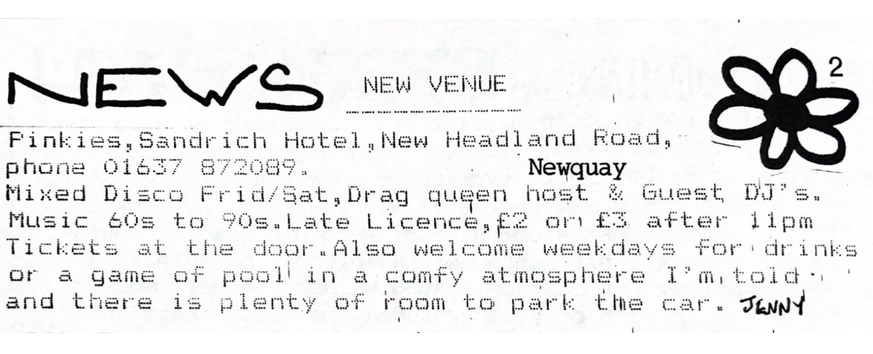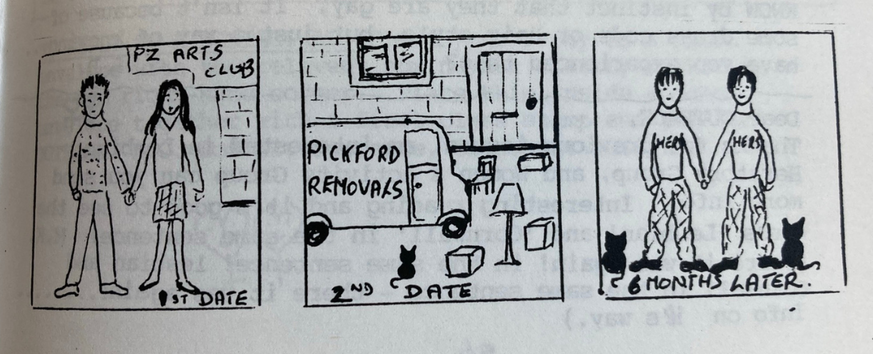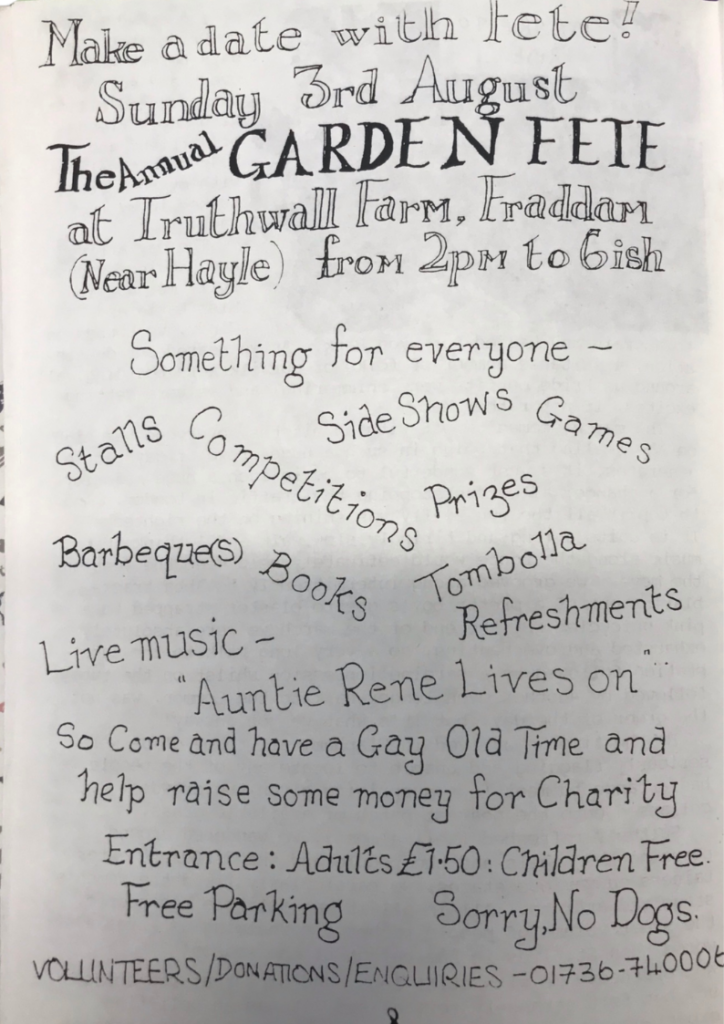First and foremost, the Outback newsletter was about connection. It was a way for lesbians in Cornwall to share their day-to-day lives with each other — from gardening tips to politics. Having spaces where you were accepted, where you could feel normal and share your life with other lesbians, was desperately needed during the newsletter’s lifetime, as mainstream acceptance wasn’t part of everyday life.

Lesbian discos and nights were a common occurrence. Outback shared tips on which venues were and were not accepting, which venues had lockers where you could hide your ‘normal’ clothes before donning your true self, and which clubs had ladies only nights. In the 1960s and 70s, many LGBTQ+ spaces were not yet separated — ladies-only nights were yet to come. One of the first true ‘gay nights’ in Cornwall was at Desdamonas in Falmouth, situated in a basement under the cafe on a Thursday night. Slowly but surely, the movement grew, and eventually venues such as the Acorn in Penzance, Penzance Arts Club, and the Opps Room became standard nights out for the community.

As well as public venues, house parties and potluck get-togethers were a firm staple of the community scene from the 1970s-1990s. Police raids on private events were frequent and feared, as the ‘gay’ age of consent in Britain was 21. It was only lowered to 16, in line with heterosexual relationships, in 2001.
Prior to the establishment of Cornwall Pride, unofficial gay fetes were an important fundraising source for the Cornwall Lesbian Line and other community groups. They were often held on private land and publicised through local channels such as Outback.

Cabarets and pantomimes were another frequent event mentioned in Outback. Often performed at the Penzance Art Club, these often consisted of skits, music by the women’s band, and lots of dressing up. These events were another avenue to sell Outback and fundraise for its continued existence.
Alongside these bigger events, smaller groups were often created, including the ‘sad old bastards’, who were over 50’s single women looking for tea and a chat – showing the need for non drinking and evening related activities.
Another great success that came out of the Outback was the establishment of ‘Coasties’ , a walking group. This group was set up for people who did not have other people to walk with but didn’t want to walk alone, and was also popular for the social aspect of walking with friends. The Coasties grew steadily throughout Outback’s lifespan, moving from sporadic walks here and there to entire seasons of organised group walks. Coasties still exists today, and has evolved with the times – moving from a typewriter copied promotion to a Facebook group.

